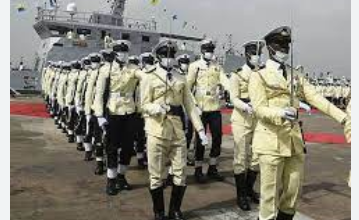Deputy Superintendent of Police in Nigeria
Deputy Superintendent of Police in Nigeria
Deputy Superintendent of Police in Nigeria
The Nigeria Police Force plays a crucial role in maintaining law and order in the country. Among the ranks of the police hierarchy, the position of Deputy Superintendent of Police (DSP) holds significant importance. In this article, we will explore the responsibilities of a DSP in Nigeria, their salary structure, and address some frequently asked questions related to their role and compensation.
Deputy Superintendent of Police Salary
The salary of a Deputy Superintendent of Police in Nigeria is influenced by various factors, including years of service, qualifications, and promotions. It’s important to note that salary structures can change over time due to government policies and economic conditions. The figures provided here are based on the information available up until September 2021.
Basic Salary
The basic salary of a Deputy Superintendent of Police ranges between ₦171,000 to ₦214,000 per month. This forms the foundation of their overall earnings.
Allowances
In addition to the basic salary, Deputy Superintendents of Police are entitled to various allowances that contribute to their overall income. Some common allowances include:
- Housing Allowance
- Transport Allowance
- Uniform Allowance
- Medical Allowance
- Leave Allowance
- Risk Allowance
- Shift Duty Allowance
The exact amount of these allowances can vary based on factors such as location, rank, and duty assignment.
Promotion and Bonuses
As Deputy Superintendents of Police gain experience and demonstrate exceptional performance, they become eligible for promotions. Promotions bring additional benefits and higher salary scales. The Nigeria Police Force may also offer periodic bonuses and incentives to recognize outstanding service.
FAQs about Deputy Superintendent of Police in Nigeria
1. What are the responsibilities of a Deputy Superintendent of Police?
A Deputy Superintendent of Police is responsible for supervising police officers, managing police divisions, coordinating investigations, maintaining public order, and collaborating with other law enforcement agencies.
2. How can one become a Deputy Superintendent of Police in Nigeria?
To become a Deputy Superintendent of Police, one must join the Nigeria Police Force as a recruit and progress through the ranks by fulfilling the necessary requirements, including passing relevant examinations, undergoing training programs, and gaining experience through practical assignments.
3. Are there opportunities for career advancement beyond the rank of Deputy Superintendent of Police?
Yes, the Nigeria Police Force provides opportunities for career advancement beyond the rank of Deputy Superintendent of Police. Capable officers can progress to higher ranks such as Superintendent of Police, Chief Superintendent of Police, and beyond.
4. Do Deputy Superintendents of Police receive any specialized training?
Yes, Deputy Superintendents of Police undergo specialized training programs to enhance their leadership skills, investigative abilities, and knowledge of police procedures. This training equips them to handle their responsibilities effectively.
5. Can Deputy Superintendents of Police retire with benefits?
Yes, like other ranks in the Nigeria Police Force, Deputy Superintendents of Police can retire with retirement benefits. The specific retirement benefits and conditions are governed by the policies and regulations of the force.
Conclusion
Deputy Superintendents of Police play a vital role in maintaining law and order in Nigeria. Their responsibilities, dedication, and commitment contribute to the overall effectiveness of law enforcement in the country. While the salary of a Deputy Superintendent of Police provides a decent income, it is important to recognize the challenges and risks associated with their duties. The Nigeria Police Force continues to review and adjust salary structures and benefits to attract and retain capable officers who can uphold the values of justice, security, and public service.






